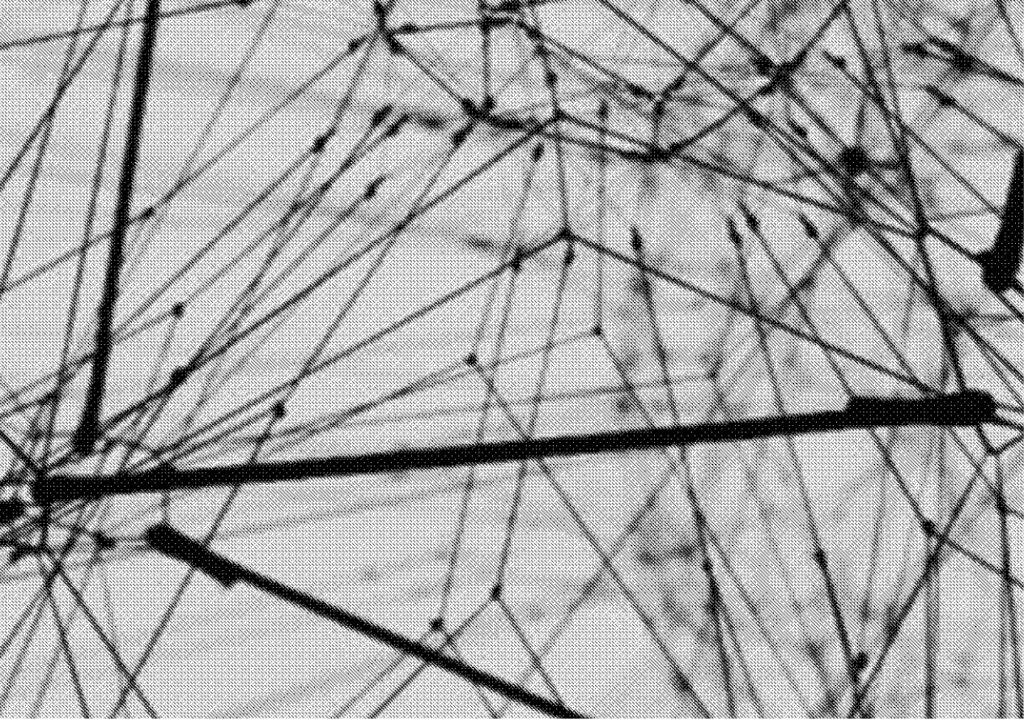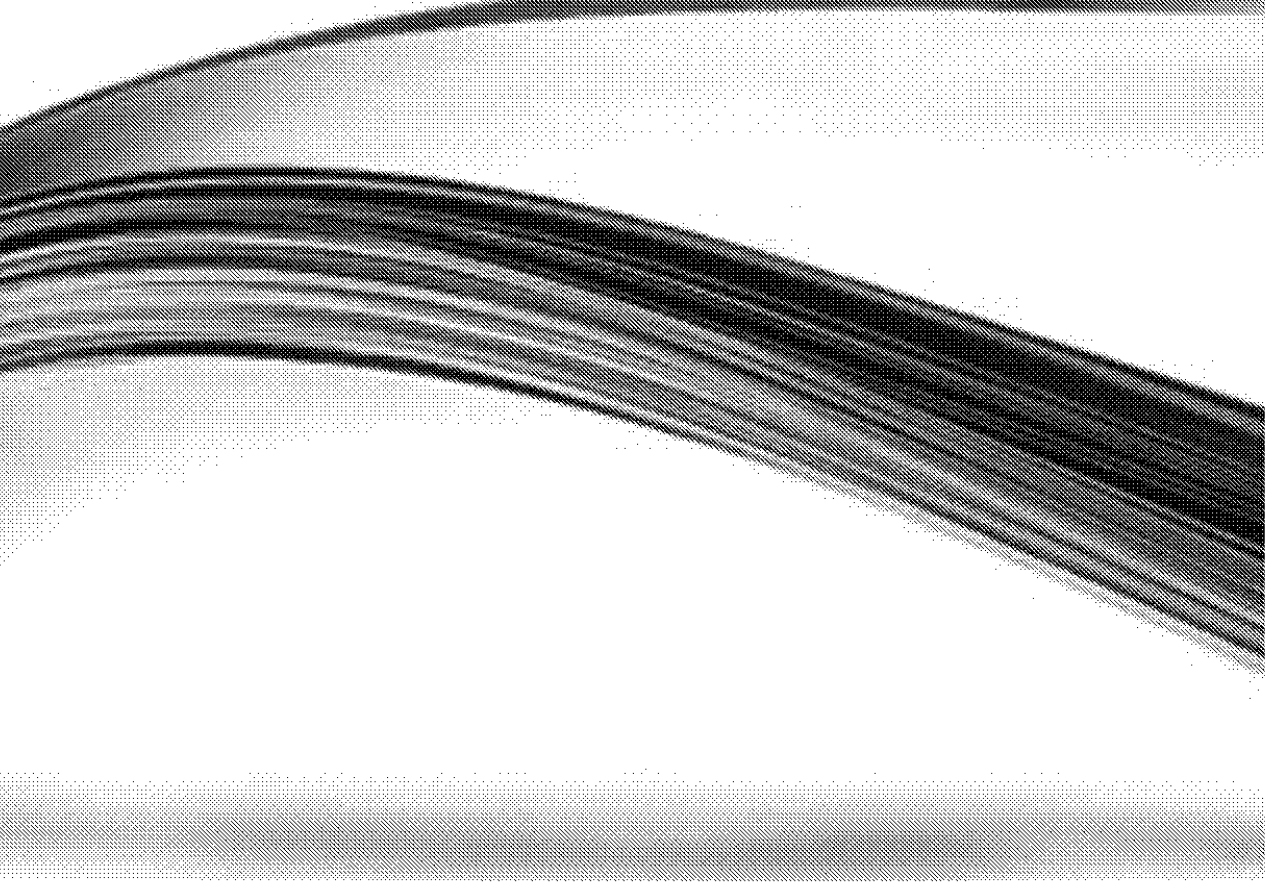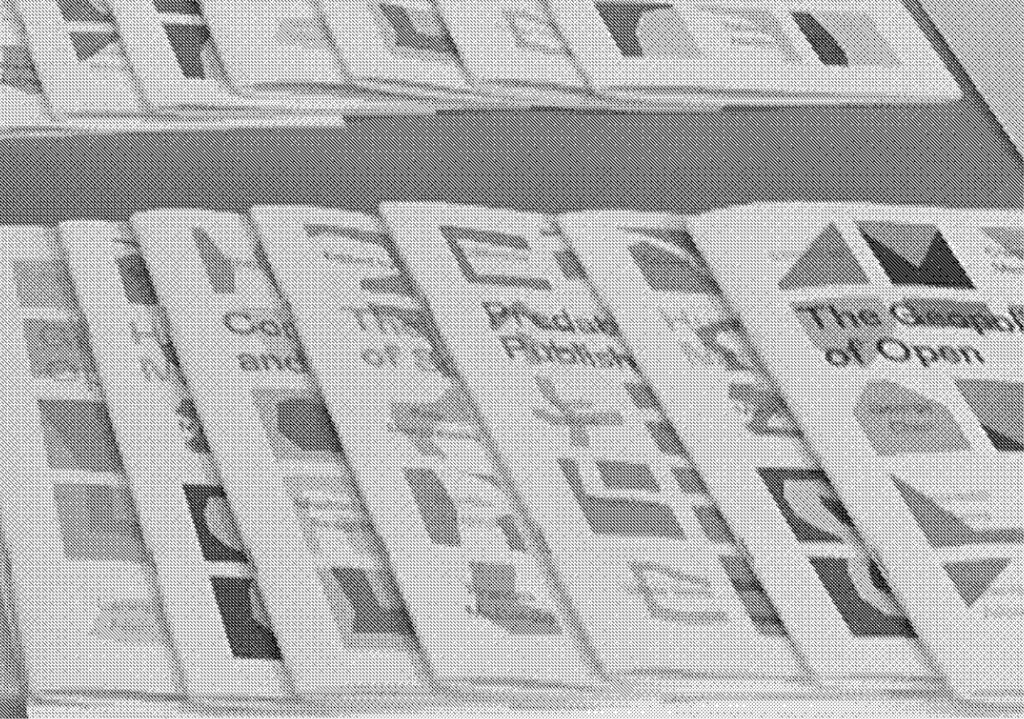Post-Publishing is a research theme that gathers together researchers and practitioners who, both collaboratively and individually, explore alternative pasts, presents, and futures for publishing. For us, reimagining what publishing is and what it does means performing it differently: beyond the commercial and humanist legacy systems that still dominate publishing, beyond a focus on books as objects and commodities and on binaries between print and digital, and beyond the way oppressions along lines of race, class, gender, sexuality, nationality, ability, and language, continue to shape our writing and publishing practices.
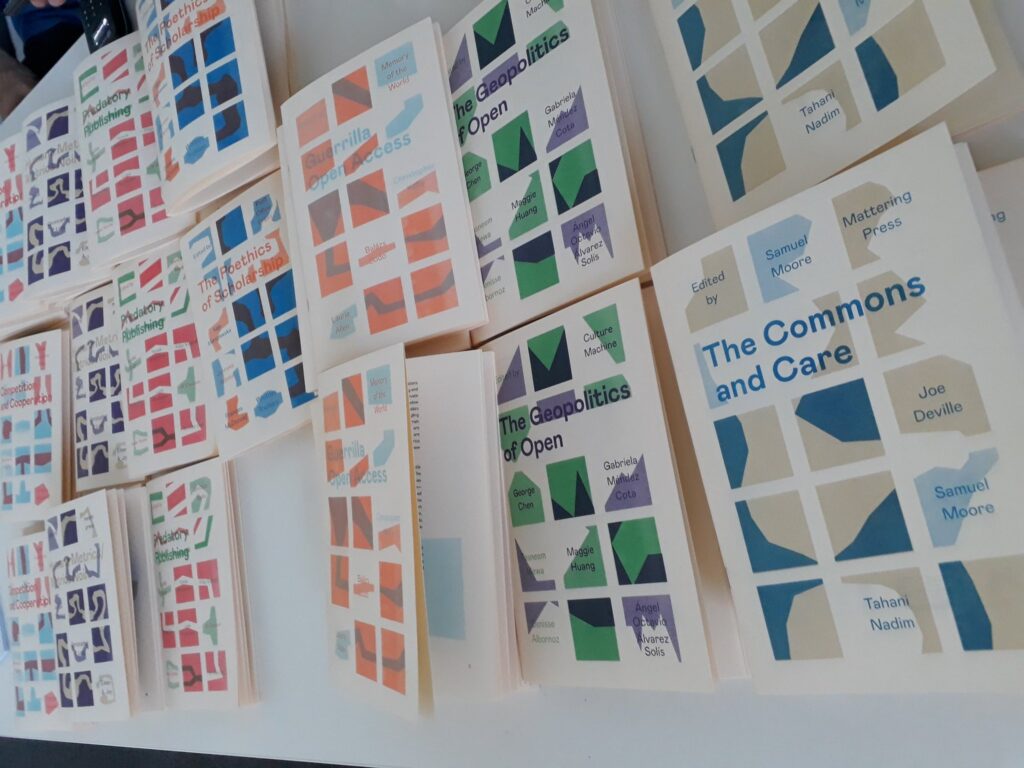
We do so by actively intervening in the way research and writing is produced and disseminated and how communities and publics are created around it. We share a willingness to question and disturb existing hegemonies and enclosures of knowledge production, and to subject deeply ingrained communication practices to creative critique, together with the institutions that sustain them (the university, library, publishing house, authorship, copyright, etc.).
Our aim is to re-perform these institutions and communication practices in potentially more ethical and responsible ways, by creating diverse interactions, alliances, and relations of care around publications, acknowledging local practices and multiple epistemologies. But also by experimenting with not-for-profit, community-led approaches to publishing, with setting up our own presses, publishing projects, and collectives (following the principle of ‘scaling small’), with emerging book formats and with the nature and scope of established textual practices (including writing, reading, and annotating), with radical open access and open-source tools and platforms, and with the creation of alternative organisational models and more equitable and diverse knowledge infrastructures
Through these practice-based and activist research interventions we directly engage with the politics of publishing and open access and with the materiality of our publications and publishing infrastructures (from books to zines and archives). We see publishing as a strategic, tactical, and collaborative method to intervene in prevalent cultures of knowledge production, as a practice embedded in and indebted to forms of community organising. Our research therefore aligns with methodologies of speculative critique and affirmative intervention, while embedding these practices in a context of conversation, communication, collaboration, and care–beyond territorial, epistemic, and disciplinary boundaries.
Through our various engagements, working across borders of academia and activism, we want to stimulate the creation of networks of publishers, scholars, librarians, technologists, activists, artists, educators, and others, from different fields and backgrounds, inside and outside of the university, all committed to exploring alternative forms of publishing.
team
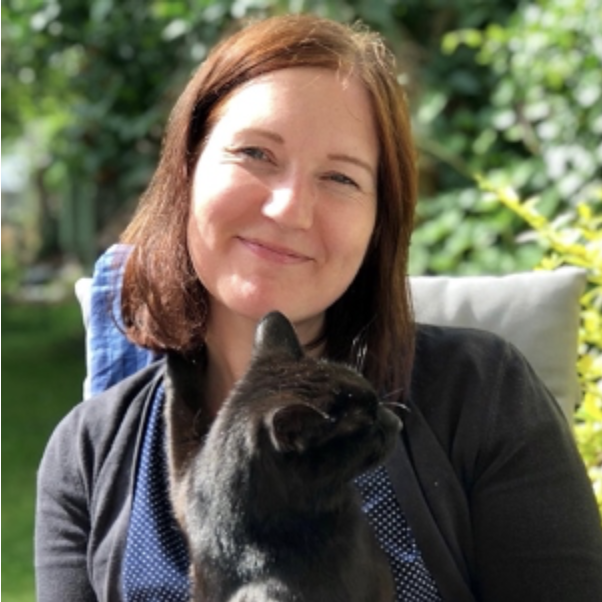
Dr Janneke Adema (she/her) is a cultural and media theorist working in the fields of (book) publishing and digital culture. She is an Associate Professor in Digital Media at The Centre for Postdigital Cultures (Coventry University). In her research she explores the future of scholarly communications and experimental forms of knowledge production, where her work incorporates processual and performative publishing, radical open access, post-publishing, scholarly poethics, media studies, book history, cultural studies, and critical theory. She explores these issues in depth in her various publications, but also by supporting a variety of scholar-led, not-for-profit publishing projects, including the Radical Open Access Collective, Open Humanities Press, ScholarLed, and Post Office Press (POP), and the Research England and Arcadia funded Community-Led Open Publication Infrastructures for Monographs (COPIM) project, on which she was Co-PI. Her monograph Living Books. Experiments in the Posthumanities (MIT Press, 2021) is openly available. You can follow her research on openreflections.wordpress.com.
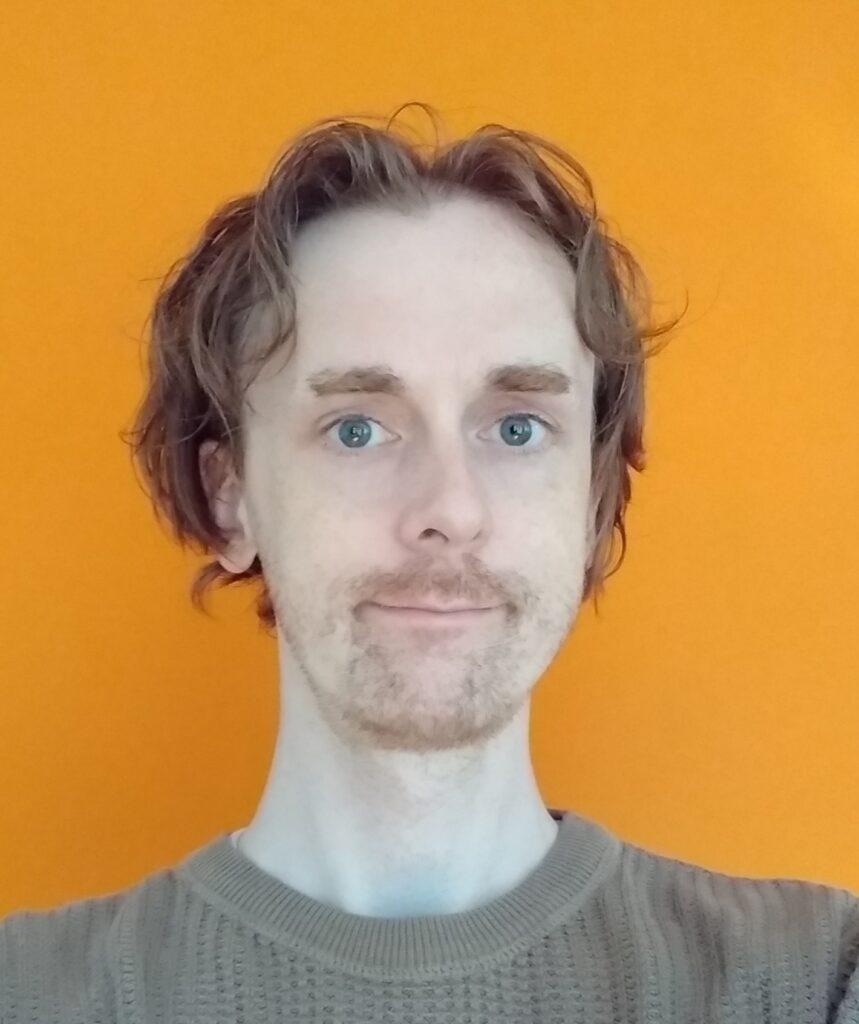
Simon Bowie is a culture writer, film critic, open source systems developer, and radical librarian. As an experienced open source software developer, he is primarily working as part of the Copim community on the Open Book Futures project to enable open access book publishing and experimental publishing. He is a solutions architect and a full-stack LAMP developer with experience of working on implementations of open source library and information systems and publishing platforms. He has an MA in Cultural and Critical Studies from Birkbeck, University of London and as a cultural studies writer he has covered a range of film festivals and reviewed films for publications and podcasts. His academic work has covered posthumanism in the video game Outer Wilds, New Sincerity in contemporary indie video games, and the depiction of time and trauma in the TV shows Twin Peaks: The Return and Yellowjackets.
Website: https://simonxix.com
Knowledge Commons: https://hcommons.org/members/simonxix/
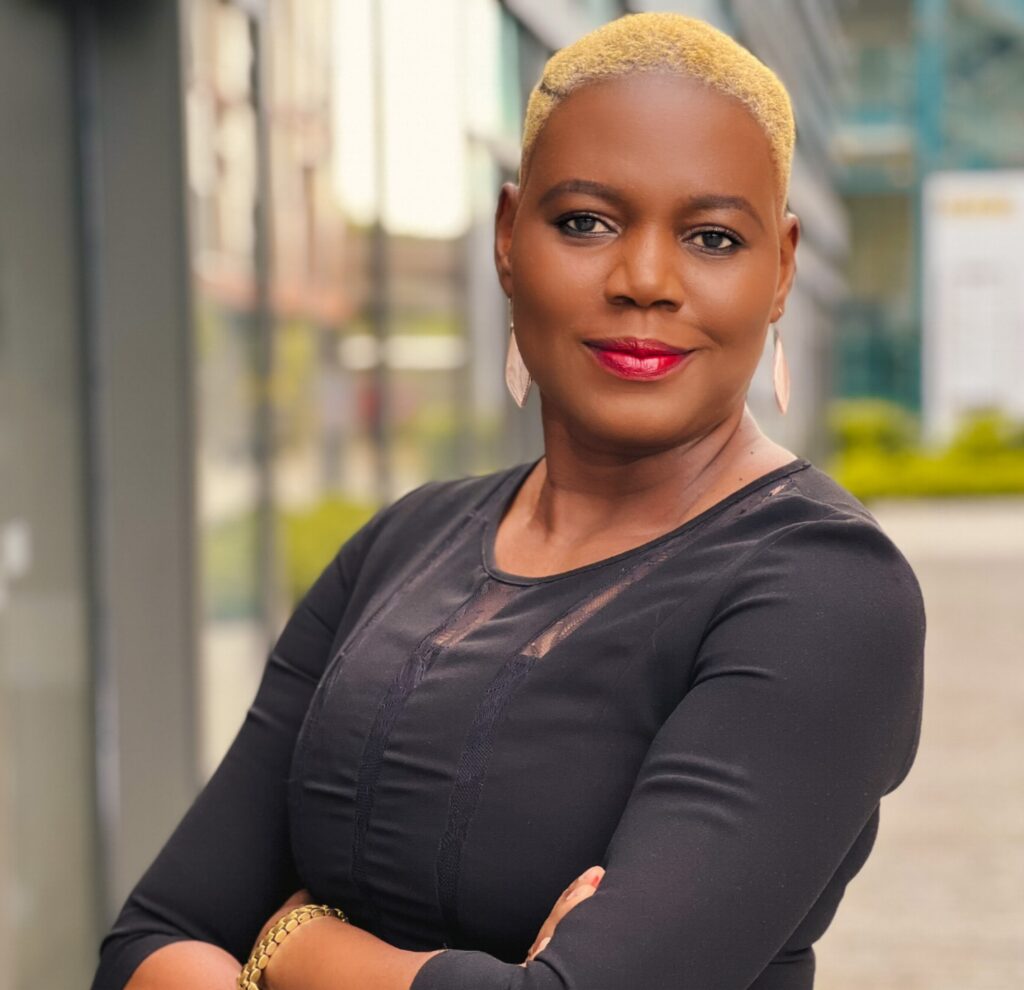
Adeola Eze is a Postgraduate Researcher in the Centre for Arts, Memory and Communities at Coventry University with a research interest in cultural memory and its influence on contemporary literature. Her research focuses on the discovery, reception, and experimental use of ancient book formats within the modern literary landscape. Adeola’s doctoral research critically assesses the discovery, preservation, reception, and reuse of ancient book formats in contemporary literature through an experimental approach. The study explores how ancient societies utilised texts and images to communicate and disseminate knowledge, shedding light on the material culture of past civilisations and their practices of discarding and repurposing materials in literature production.
The investigation focuses on pre-modern cultures, exploring how texts were produced, transmitted, and received. Emphasising the importance of preserving surviving texts, this research aims to gain a comprehensive understanding of cultural, literary, and historical achievements from the past, considering challenges like deciphering underlying text or languages in manuscripts.
Through analysing experimental book formats before the printing press, this project examines their historical significance, impact on literary culture, relation to technology and culture, environmental sustainability, and their potential to challenge traditional writing and storytelling methods. Additionally, it explores their connections with materials, fragments, and classical mythology, drawing comparisons with contemporary book types and digital versions.
Outside of her primary research, her research interest also stretches to children’s literature, investigating how children engage with literature and how their earliest encounters with stories shape their understanding of literary constructs based on convention and expectation. With a passion that burns brightly, Adeola co-founded a literacy centre for children, Jordan Hill Creative Writing & Reading Workshop and Jordan Hill Books, a publishing firm solely for young writers, in Lagos, Nigeria in 2011.
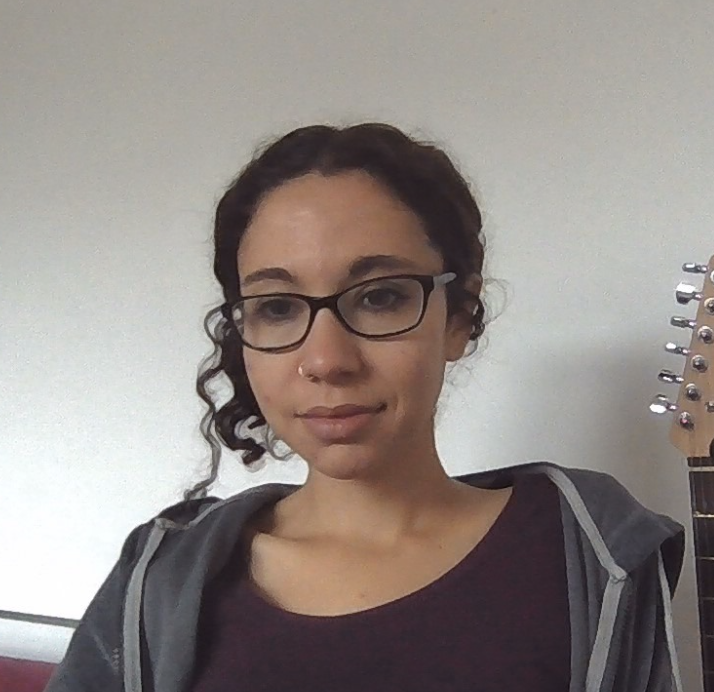
Judith Fathallah received her PhD in media and cultural studies from Cardiff University in 2014. Her thesis concerned fanfiction and changing ideologies of authorship, for which she received the Centre for Journalism Studies PhD Research Award 2010-11. This thesis formed the basis of her first book, Fanfiction and the Author which is available to read Open Access at OAPEN. She went on to a lectureship in digital media at Bangor University in North Wales, a postdoctoral research role at Solent University, where she developed my interests in fandom, new media and music. Judith published Emo: How Fans Defined a Subculture which is the only academic monograph on emotional hardcore to date. Throughout this time, Judith became increasingly interested in new forms of publishing, digital literacies and the importance of Open Access for a fair and equitable academy. Thus in 2021, she became a member of the COPIM project (Community-Led Open Publication Infrastructures for Monographs), specifically the creation and launch of the Open Book Collective (OBC).
Judith is particularly interested in the embryonic field of dark fandom studies, i.e., the fan cultures that develop around serial killers, school shooters, and other violent criminals. Having previously published on this topic in New Media and Society and Humanities, she is now writing a book called Killer Fandom: Fan Studies and the Celebrity Serial Killer. It will be published Open Access by mediastudies.press in 2023. Judith is also seeking funding for a collaborative project exploring the social and economic processes by which interest in violence and dark fandom topics becomes culturally legitimate, specifically regarding flows of capital.
Gary Hall is a cultural theorist working in the areas of art, politics and technology. He is Professor of Media and Performing Arts in the Faculty of Arts & Humanities at Coventry University, UK, where I am director of the postdigital arts and humanities research centre/studio, The Post Office (a disruptive iteration of the Centre for Disruptive Media). He is author of The Inhumanist Manifesto (Techne Lab, 2017), Pirate Philosophy (MIT Press, 2016), The Uberfication of the University (Minnesota UP, 2016), Digitize This Book! (Minnesota UP, 2008), and Culture in Bits (Continuum, 2002). He is also co-author of Públicos Fantasma – La Naturaleza Política Del Libro – La Red (Taller de Ediciones Económicas, 2016) and Open Education (Rowman and Littlefield International, 2014), and co-editor of Experimenting (Fordham UP, 2007) and New Cultural Studies: Adventures in Theory (Edinburgh UP, 2006).
Humanities Commons: https://hcommons.org/members/garyhall/
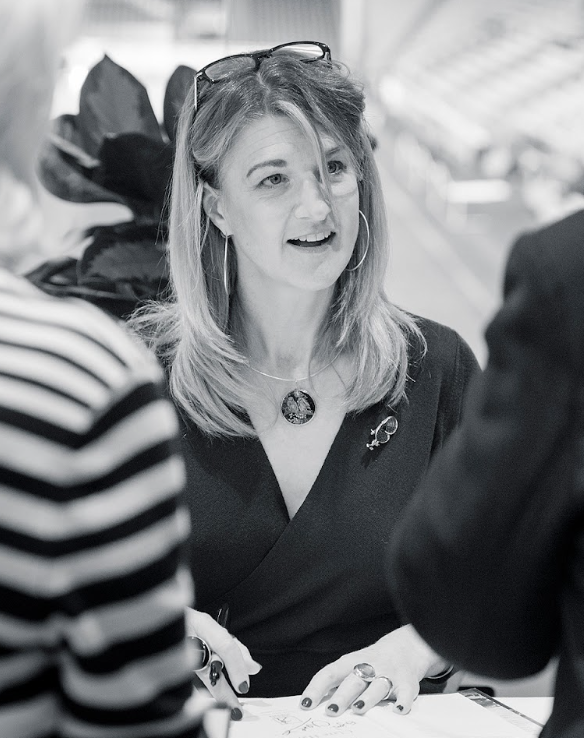
Clare Harvey is a traditionally published historical fiction author (Simon & Schuster UK) with an MA in Creative Writing from the University of Nottingham. She is currently a postgraduate researcher at Coventry University, working towards her PhD: Co-authoring with forgotten voices – applying remix theory to writing historical fiction. As the title suggests, she’s particularly interested in how archival texts documenting lived experience can be repurposed into new historical fiction. Whilst this is practice research – Clare is writing a novel using cut-up methodology as a stepping off point – the process itself necessarily interrogates alternative ways of writing and thinking about how the past is portrayed in a post-digital era.
Website: https://clareharvey.net/
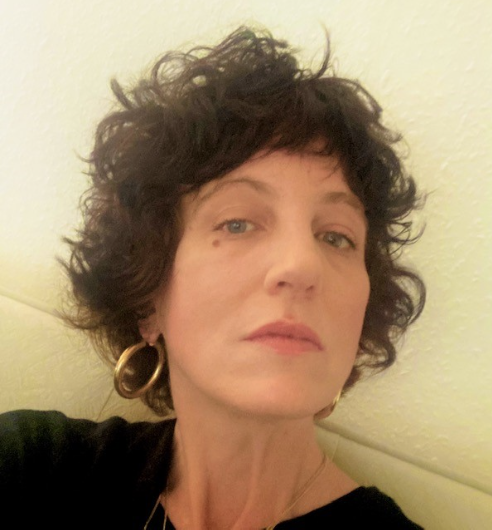
Dr Rebekka Kiesewetter is a Research Fellow at the Centre for Postdigital Cultures. Her research interests are, amongst others, more diverse and equitable futures for scholarly publishing; collaborative research, writing, editing, and publishing cultures and practices; experimental monograph publishing in the humanities; alternative genealogies of open access publishing; and intersectional feminist critiques of internationalised knowledge production.
Rebekka is a researcher on the Open Book Futures (OBF) research project; a co-convener of the Radical Open Access Collective; a co-editor of the Combinatorial Books: Gathering Flowers experimental book series with Open Humanities Press; and a an editorial board member of continent. journal. She finished her PhD thesis Reading Differently: Expanding Open Access Definitions Towards Greater Knowledge Equity in 2023 and her work has been published in journals such as the Journal of International Women’s Studies and the Tijdschrift voor Genderstudies.
Website: https://www.rebekkakiesewetter.com
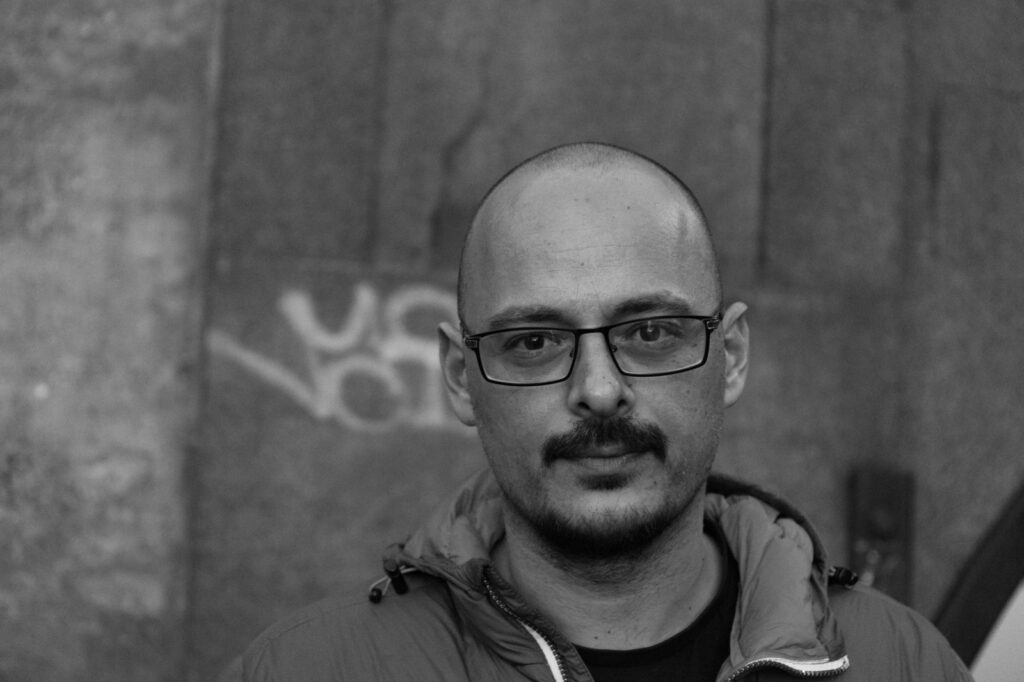
Alexandros Plasatis is a doctoral student at Coventry University’s Centre for Postdigital Cultures. He is the founder, publisher and lead editor of the other side of hope: journeys in refugee and immigrant literature, a literary magazine edited by immigrants and refugees that publishes poetry and prose by migrants from around the world. Established in 2021, the other side of hope receives funding from Arts Council England, and became the UK’s first ever literary magazine of sanctuary. His first book, Made by Sea and Wood, in Darkness, narrates the lives of the undocumented Egyptian migrants who work as fishermen in a Greek town, and was shortlisted for the Edge Hill Prize. Stories from this book have been nominated for the Pushcart Prize and Best of The Net. He has a PhD in ethnography-based Creative Writing.
Website: www.alexandrosplasatis.com
Eva Weinmayr’s practice is situated at the interface of art, critical publishing, and radical education. Her focus is on decolonial feminist discourses, pedagogies, and practices. From 2019 to 2022 she co-led the EU-funded collective research and study programme Teaching to Transgress Toolbox (with erg, Brussels) and co-initiated kritilab, an open-source publication platform that experiments with discrimination-critical art education. As part of Ecologies of Dissemination (HDK-Valand, 2022-2024) with Femke Snelting, she developed decolonial feminist practices to Open Access. Recent publication and exhibition projects include “Noun to Verb”, concerned with the micro-politics of publishing from an intersectional feminist perspective; “Teaching the Radical Catalog – a Syllabus” (2021-2022, with Lucie Kolb); “Library of Inclusions and Omissions” (2016-20); “The Piracy Project” (2010-2015, with Andrea Francke); AND Publishing (2010-ongoing, with Rosalie Schweiker). Currently, she works as Visiting Professor for Critical Access at the Institute Experimental Design and Media Cultures at Basel Academy of Art and Design (CH). Since 2024 she is an Honorary Fellow at the Centre for Postdigital Cultures, Coventry University (UK).
Maddalena Fragnito, Valeria Graziano, Patrick Hart, Kaja Marczewska, Marcell Mars, Tomislav Medak, Samuel Moore, Peter Willis
projects
publications
(descending by date)
